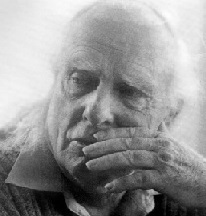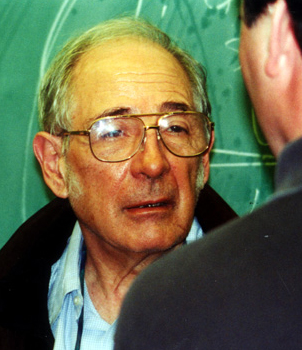
In linguistics and related fields, pragmatics is the study of how context contributes to meaning. The field of study evaluates how human language is utilized in social interactions, as well as the relationship between the interpreter and the interpreted. Linguists who specialize in pragmatics are called pragmaticians. The field has been represented since 1986 by the International Pragmatics Association (IPrA).
In the philosophy of language and linguistics, speech act is something expressed by an individual that not only presents information but performs an action as well. For example, the phrase "I would like the kimchi; could you please pass it to me?" is considered a speech act as it expresses the speaker's desire to acquire the kimchi, as well as presenting a request that someone pass the kimchi to them. According to Kent Bach, "almost any speech act is really the performance of several acts at once, distinguished by different aspects of the speaker's intention: there is the act of saying something, what one does in saying it, such as requesting or promising, and how one is trying to affect one's audience". The contemporary use of the term goes back to J. L. Austin's development of performative utterances and his theory of locutionary, illocutionary, and perlocutionary acts. Speech acts serve their function once they are said or communicated. These are commonly taken to include acts such as apologizing, promising, ordering, answering, requesting, complaining, warning, inviting, refusing, and congratulating.

John Rogers Searle is an American philosopher widely noted for contributions to the philosophy of language, philosophy of mind, and social philosophy. He began teaching at UC Berkeley in 1959, and was Willis S. and Marion Slusser Professor Emeritus of the Philosophy of Mind and Language and Professor of the Graduate School at the University of California, Berkeley, until June 2019, when his status as professor emeritus was revoked because he was found to have violated the university's sexual harassment policies.

John Langshaw Austin, OBE, FBA was a British philosopher of language and leading proponent of ordinary language philosophy, best known for developing the theory of speech acts.

Herbert Paul Grice, usually publishing under the name H. P. Grice, H. Paul Grice, or Paul Grice, was a British philosopher of language who created the theory of implicature and the cooperative principle, which became foundational concepts in the linguistic field of pragmatics. His work on meaning has also influenced the philosophical study of semantics.
In the philosophy of language and speech acts theory, performative utterances are sentences which not only describe a given reality, but also change the social reality they are describing.
Universal pragmatics (UP), more recently placed under the heading of formal pragmatics, is the philosophical study of the necessary conditions for reaching an understanding through communication. The philosopher Jürgen Habermas coined the term in his essay "What is Universal Pragmatics?" where he suggests that human competition, conflict, and strategic action are attempts to achieve understanding that have failed because of modal confusions. The implication is that coming to terms with how people understand or misunderstand one another could lead to a reduction of social conflict.
The concept of illocutionary acts was introduced into linguistics by the philosopher J. L. Austin in his investigation of the various aspects of speech acts. In his framework, locution is what was said and meant, illocution is what was done, and perlocution is what happened as a result.
The technical term direction of fit is used to describe the distinctions that are offered by two related pairs of opposing terms:
Performativity is the concept that language can function as a form of social action and have the effect of change. The concept has multiple applications in diverse fields such as anthropology, social and cultural geography, economics, gender studies, law, linguistics, performance studies, history, management studies and philosophy.
A perlocutionary act is the effect of an utterance on an interlocutor. Examples of perlocutionary acts include persuading, convincing, scaring, enlightening, inspiring, or otherwise affecting the interlocutor. The perlocutionary effect of an utterance is contrasted with the locutionary act, which is the act of producing the utterance, and with the illocutionary force, which does not depend on the utterance's effect on the interlocutor.
In linguistics, linguistic competence is the system of unconscious knowledge that one knows when they know a language. It is distinguished from linguistic performance, which includes all other factors that allow one to use one's language in practice.
In linguistic pragmatics, the term metalocutionary act is sometimes used for a speech act that refers to the forms and functions of the discourse itself rather than continuing the substantive development of the discourse.

In analytic philosophy, philosophy of language investigates the nature of language and the relations between language, language users, and the world. Investigations may include inquiry into the nature of meaning, intentionality, reference, the constitution of sentences, concepts, learning, and thought.
Bootstrapping is a term used in language acquisition in the field of linguistics. It refers to the idea that humans are born innately equipped with a mental faculty that forms the basis of language. It is this language faculty that allows children to effortlessly acquire language. As a process, bootstrapping can be divided into different domains, according to whether it involves semantic bootstrapping, syntactic bootstrapping, prosodic bootstrapping, or pragmatic bootstrapping.
The term linguistic performance was used by Noam Chomsky in 1960 to describe "the actual use of language in concrete situations". It is used to describe both the production, sometimes called parole, as well as the comprehension of language. Performance is defined in opposition to "competence"; the latter describes the mental knowledge that a speaker or listener has of language.
Functional grammar (FG) and functional discourse grammar (FDG) are grammar models and theories motivated by functional theories of grammar. These theories explain how linguistic utterances are shaped, based on the goals and knowledge of natural language users. In doing so, it contrasts with Chomskyan transformational grammar. Functional discourse grammar has been developed as a successor to functional grammar, attempting to be more psychologically and pragmatically adequate than functional grammar.
In linguistics and philosophy of language, an utterance is felicitous if it is pragmatically well-formed. An utterance can be infelicitous because it is self-contradictory, trivial, irrelevant, or because it is somehow inappropriate for the context of utterance. Researchers in semantics and pragmatics use felicity judgments much as syntacticians use grammaticality judgments. An infelicitous sentence is marked with the pound sign.
The Integrational theory of language is the general theory of language that has been developed within the general linguistic approach of integrational linguistics.

The Searle–Derrida debate refers to a famous intellectual controversy opposing John Searle and Jacques Derrida, after Derrida responded to J. L. Austin's theory of the illocutionary act in his 1972 paper "Signature Event Context". In his 1977 essay Reiterating the Differences: A Reply to Derrida, Searle argued that Derrida's apparent rejection of Austin was unwarranted, but later refused to let this 1977 ″reply″ be printed along with Derrida's papers in the 1988 collection Limited Inc — in which a new text by Derrida ridiculed Searle's positions on the topic. In the 1990s, Searle clarified why he did not consider Derrida's approach to be legitimate philosophy.





